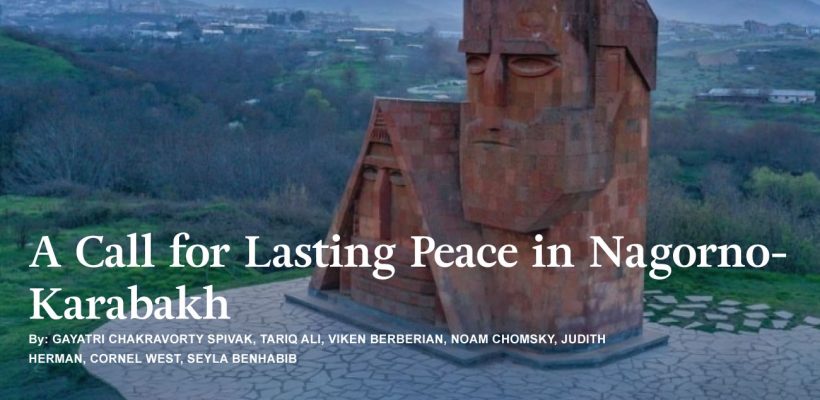
Statement of Support for Artsakh from Leading Intellectuals
2 min readLeading intellectuals in the Los Angeles Review of Books (LARB) have released a statement of support for Artsakh, A Call for Lasting Peace in Nagorno-Karabakh.
Providing an accurate context for the current war, the LARB statement rejects the false parity approach that has been abundant in media coverage. The letter recognizes and condemns Turkish expansionism under Erdoğan to re-establish Ottoman power in the region, suggesting internal checks and balances as a means of reaching compromise. “As it stands, we understand that Azerbaijan, supported by Turkey, is cleansing Artsakh (Nagorno-Karabakh), a historically Armenian enclave placed within its Soviet-era boundaries, of its ethnic Armenian population.”
The letter calls on ethnic minorities in Azerbaijan who are currently on their front lines, such as Lezgins, the Talysh, Avars, Tats, Udis, the Tsakhur, Ingiloys, Rutuls, and Kurds, to support rather than oppose the minority struggle of the Armenians.
The statement also highlights the history of Azerbaijan’s cultural erasure of Armenian presence in lands to which Armenians are indigenous. “Azerbaijan’s 1997–2006 erasure in Nakhchivan of its Armenian culture gives us a sense of the seriousness of the continuing violence and relentless destruction of civilian lives and property, precisely of longstanding minorities, that we have been witnessing over the last decades. We remind you that the site of the bombing includes archaeological sites such as the ancient Armenian city of Tigranakert.”
The statement is signed by prominent scholars including Noam Chomsky, Gayatri Chakravorty Spivak, Cornel West, and our very own Viken Berberian, lecturer at the College of Humanities and Social Sciences.
Founded in 1991, the American University of Armenia (AUA) is a private, independent university located in Yerevan, Armenia, affiliated with the University of California, and accredited by the WASC Senior College and University Commission in the United States. AUA provides local and international students with Western-style education through top-quality undergraduate, graduate, and certificate programs, promotes research and innovation, encourages civic engagement and community service, and fosters democratic values.
